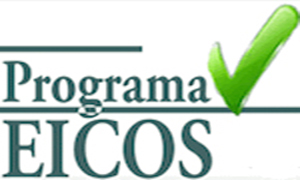Mission
The PhD and Master Program in Psychosociology of Communities and Social Ecology of the Institute of Psychology of the Federal University of Rio de Janeiro aims at providing academic training through the development of scientific research and psychosocial intervention in community processes.
With regards to (a) academic training, the aim is to prepare teachers, researchers and psychosocial workers; (b) research development, the goal is to contribute to the theoretical and methodological development of Psychosociology as an interdisciplinary scientific field within Social Psychology; (c) community intervention processes, the Program’s objective is to develop abilities among psychosocial workers in order to encourage citizenship actions with a view on the improvement of psychosocio-environmental conditions.
With this beacon in mind, the Graduate Program in Psychosociology of Communities and Social Ecology seeks to articulate academic reflection and data-driven research with social intervention, bridging complex themes in the Humanities and Social Sciences. Understanding and interpreting correctly the dynamics of psychosocial relationships are strategic vectors for defining development processes intertwined with the training of teachers, researchers and psychosocial community workers, at different levels. National agencies such as CAPES, CNPq and FAPERJ, and international ones, like UNESCO and the European Union, have been providing funding for the Program activities.
History
The first cohort was created, at the Master’s level, in 1989. In 1992 it adopted the name EICOS – Interdisciplinary Studies of Communities and Social Ecology, was granted approval in 1993 by the Federal Government. Its pioneering proposal in the innovative field of Psychosociology focused in theoretical and methodological research on community problems and social ecology. First of all, it adopted an interdisciplinary perspective with regards to the discussion and problematization of psychosocial issues, at a time when this approach was still incipient in the area of Psychology in general, and Social Psychology in particular. Such an interdisciplinary perspective has always been present in its history. Secondly, because the Program always integrated research with teaching and psychosocial intervention, encouraging the academic commitment to the psychosocial reality of communities. It brought the university closer to the lifeworld in an integrated and ethical way.
EICOS has established itself on the national and international scene thanks to its innovative character when it got the UNESCO Chair for Sustainable Development in 1993. The Program was also awarded, in 2003, with the UNITWIN AWARD, the only winner in all of Latin America in the field of Social Sciences.
In 2001, the PhD Program was approved by the Federal Government, later adopting its present name (Psychosociology of Communities and Social Ecology). However, tradition ended up with people calling it EICOS to the present day! Although French Psychosociology rooted in constructivism has been predominant in the Program since its inception (with the participation of Serge Moscovici and Denise Jodelet), over time it has opened up to a variety of interdisciplinary Humanities and Social Sciences approaches (Anthropology, Sociology, Communication, Philosophy, Educational Sciences, etc.) from a broader canvas of epistemological standings. Ahead of its time, interdisciplinarity became prevalent attracting students coming from various fields of knowledge, adding new expertise to that built by Social Psychology. As a result, EICOS continues to support this unique way of looking at knowledge, with a curriculum aimed at responding to the social and environmental challenges of communities.
In its history, EICOS developed research along two broad areas within Psychosociology. On the one hand, grouping researchers around the theme Communities, Development, Environment and Social Inclusion. On the other hand, around issues related to Critical Psychosociology, Communities, Networks and Everyday Policies. Recently, in 2019, another area was added and, presently, there are three research themes (see the page on Research Trends).
In a word
The PhD and Master Program in Psychosociology of Communities and Social Ecology is unique in Brazil as well as it is in the world. In Brazil, it attracts researchers who understand Social Psychology as an essentially interdisciplinary field, that is Psychosociology. In the world, it has been recognized for its excellence thanks to its broad network of international collaboration and academic training. For instance, the EICOS participates in a multi-university Graduate Program managed by the European Union (MITRA – Erasmus +). The scientific diversity and plurality of theoretical and methodological approaches, which always search for concrete impact in the real world, are among the elements that make the Program attractive and meaningful for many students and researchers interested in psychosocial dialogue, and also unique.

Comments are closed, but trackbacks and pingbacks are open.